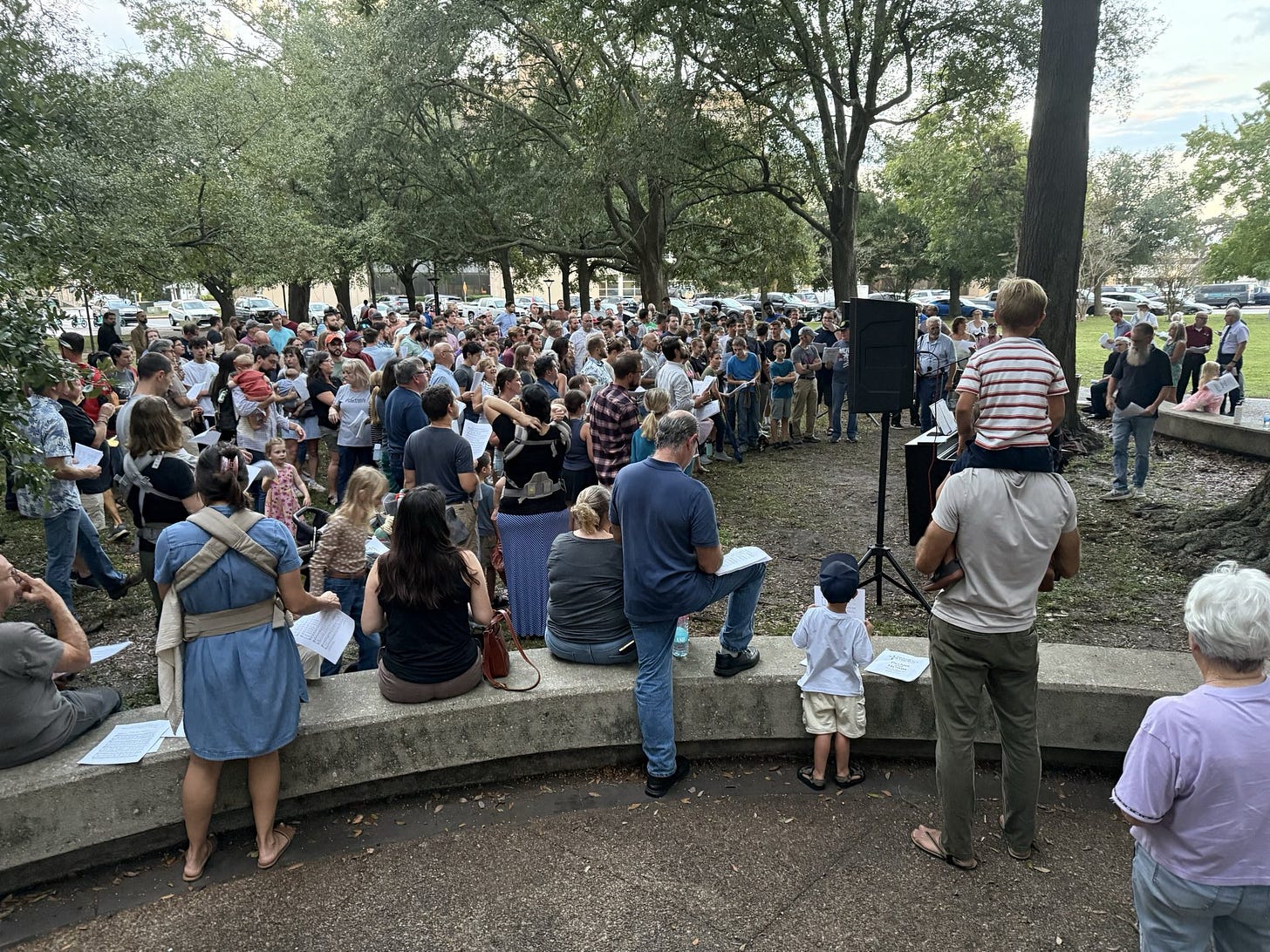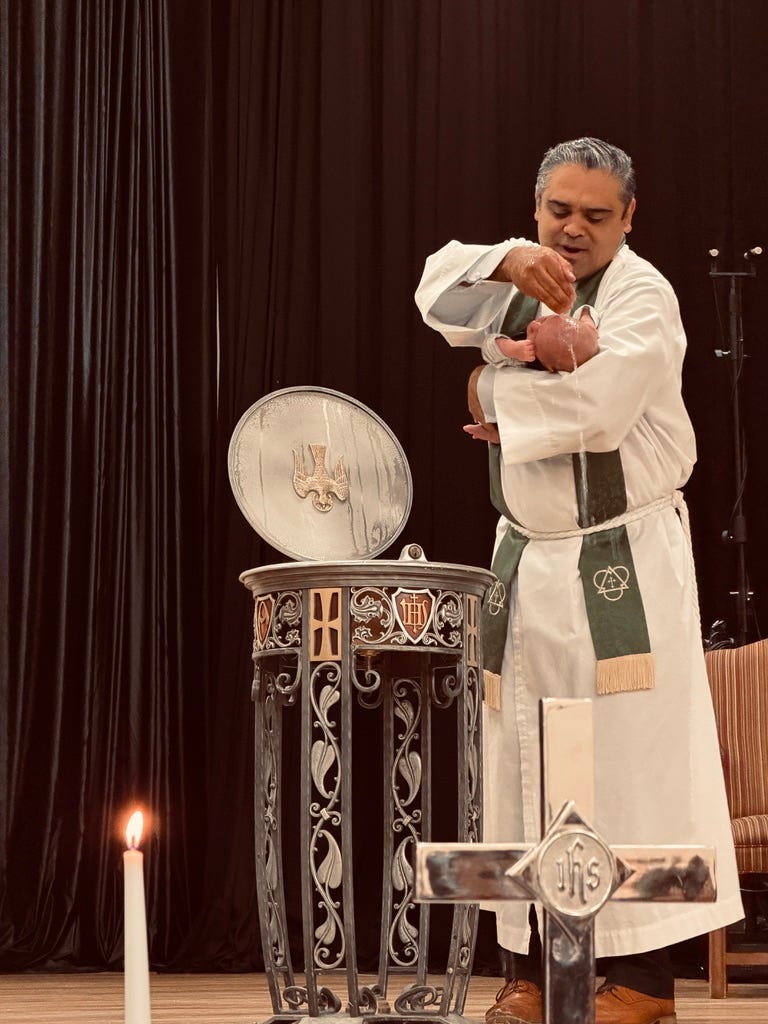Pensacola Rising, Voddie Baucham, and Typological Offerings
Many evangelicals look at books of the Bible as if they can be digested without connection to the covenantal structures of the rest of the Bible.
Thanks for the 7,000 followers on X. It’s been a delightful journey. My efforts on it are minimal, but I still view it as profitable. It’s also been a place where I have made some incredible friendships. True, idiocy finds a home in places like Twitter, but overwhelmingly, I have found it refreshing.
I am currently in Dallas. Tomorrow I will be attending Voddie Baucham’s funeral. My friends at Wrath and Grace have started this official YouTube page for Voddie. For those of you who can’t be here, the memorial service will be streamed live via the new page. Let me also encourage you to subscribe to receive great content from the late Voddie Baucham.
I am saddened to have missed it, but my lovely congregation stood strong against the perversion soon to take place in Pensacola. You can hear a summary here. Our congregation, led by Pastor Al Stout, stood strong with psalms, hymns, and prayers against this great evil.
Typological Blessings
The Bible’s Symbolic World
The Bible offers a deeply symbolic world in the Old Testament, and the New Testament writers embedded in that Old Testament order can’t escape its consequences. They bring it into their own worlds. The lack of a symbolic worldview makes modern interpretation flawed or lacking in our day. Many evangelicals look at books of the Bible as if they can be digested without connection to the covenantal structures of the rest of the Bible.
We should be equal opportunity offenders here: this skepticism comes from conservative and liberal perspectives. Liberals think the Bible is symbolic because it uses man-generated symbolism. Man authors it without any divine guidance. And conservatives don’t see a reason for the symbolism except as an after-effect; it’s arbitrary. So, statements like “the Holy Spirit does not waste his breath” are considered silly—“Not every detail means something.” But if not every detail means something, then what are the details for? We argue that the details are there for something: to beautify, to adorn, to glorify, to transfigure, to add weight to, to elaborate, to tie us back, to connect us forward…yes, the Holy Spirit does not waste his breath. The text gives us details for a reason. The text mentions rocks and hills for a reason, not merely as an add-on or to fill space.
Instead of abstract philosophizing, the Bible is written in stories, histories, poems, and symbols. Yes, there is straightforward language, as in Paul, but there is also straightforward poetry and symbols from which Paul draws.
What Symbols Create
Grace redeems man. When we are justified, man is restored to wholeness. As Jim Jordan observes: “The restoration of the whole fabric of life takes place when these symbols are restored to power.” That’s very clear. These symbols lose their power when icons are used as substitutes for human beings. When the words of a priest make the sacraments real, then we lose their power. When the Bible is not trusted as God’s true, self-authenticating word, it loses its power. But grace puts all these special symbols in their proper place.
Our symbols create, but they also reinforce our worldviews. Jordan argues that we re-energize our worldviews by familiarizing ourselves with the symbolism of the Bible. This becomes more than a mere academic exercise; seeing the biblical patterns will also allow us to see patterns in history and culture. It will strengthen us to be good evaluators of our world and help us think about how to reshape our little worlds better to please God.
Baptism Marker
The Gospels tell us that the Kingdom of God belongs to these little jolly people who walk into the Garden and grow with the Garden’s language around, beneath, and over their baptized foreheads. To be in the kingdom is to embrace a new ethic; to be in the kingdom is to follow the rules of the King. The baptized can always hear the roar of the King in the garden.
When the King’s seal marks the baptized, they hold tightly to it wherever they may go. When strangers in the Garden seek to turn them away from the roar of the King, they roar back in imitation to their Lord, “Drop your ugly accusation; I am baptized into Christ!” And when he strays from the kingdom, we urge fathers and mothers to issue sobering and joyful charges to call him back, for there is no life outside the Garden; no, there is no life at all. Welcome to the font, little ones! Welcome to the kingdom and its King!
Here Comes the Sun




